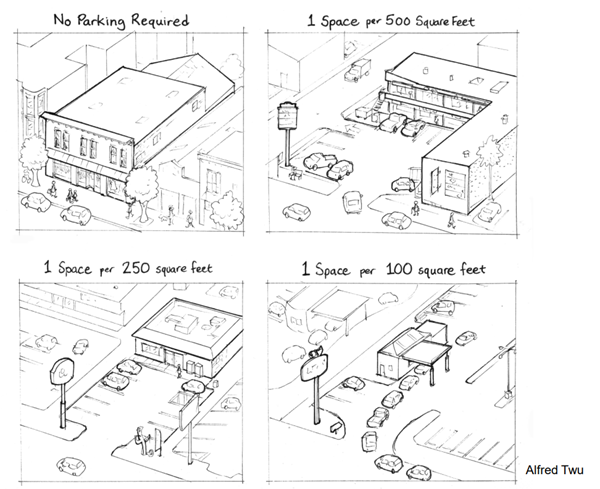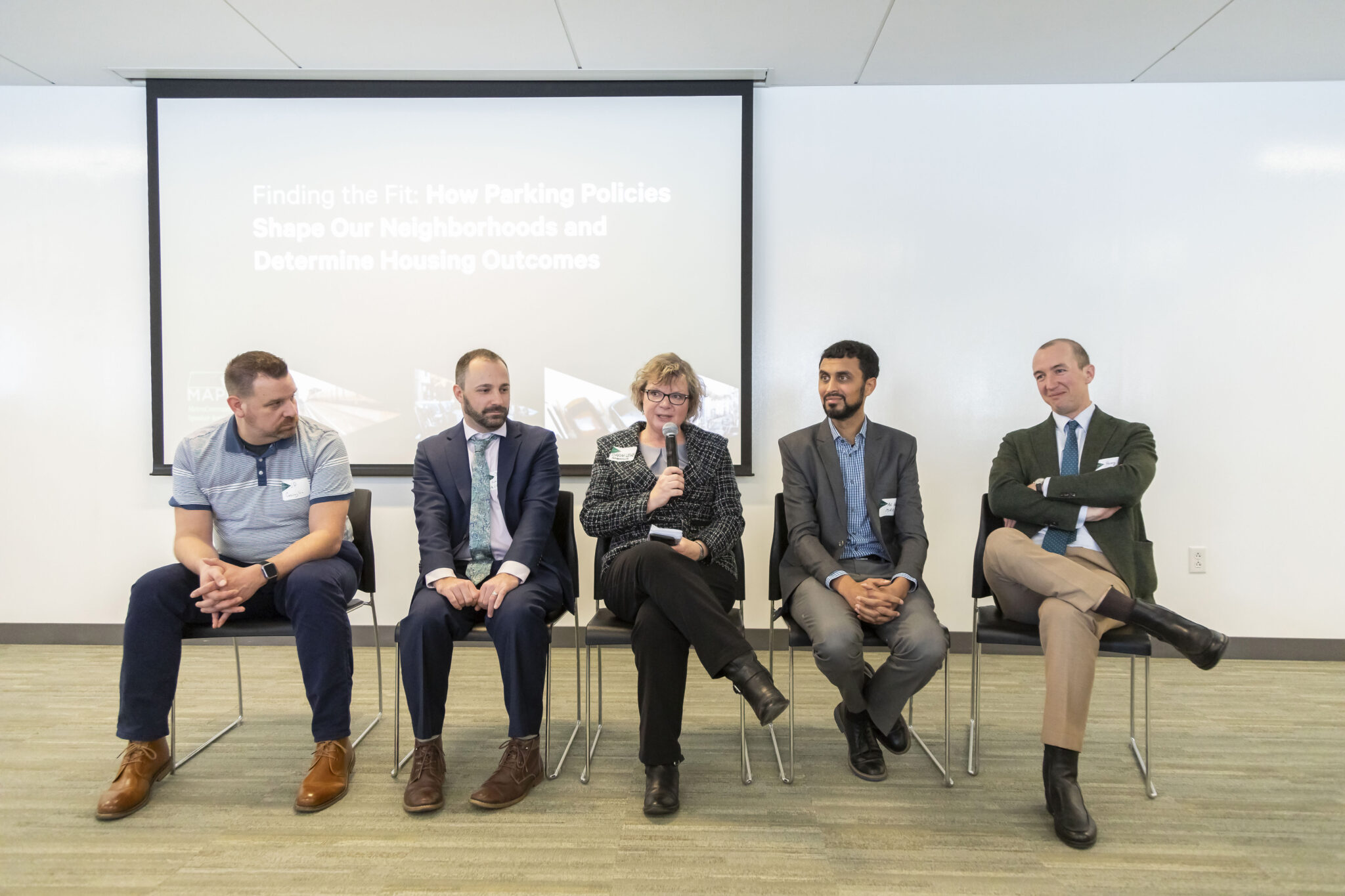MetroCommon Speaker Series Returns with "Finding the Fit"
Written by Adi Nochur, Senior Transportation Planner, and Julia Wallerce, Assistant Director of Transportation
April 8, 2024 - Parking may seem like a mundane issue, yet it frequently generates passionate public debate and requirements can prevent developments of all kinds from being built. According to author and journalist Henry Grabar, it even “explains the world.” Upon learning last summer that Henry, the author of Paved Paradise: How Parking Explains the World, had a local Loeb Fellowship at the Harvard Graduate School of Design, MAPC was excited to reach out to explore potential collaboration.
“Finding the Fit: How Parking Policies Shape Our Neighborhoods and Determine Housing Outcomes” resulted from those conversations and collaboration with Grabar. The event, hosted by MAPC in downtown Boston on March 19, drew more than 100 attendees and featured a keynote from Grabar and a panel with local municipal planners. The event also served as the official relaunch of MAPC’s MetroCommon 2050 Speaker Series for the first time since the COVID-19 pandemic.
“Finding the Fit” (video recording available here) provided a timely discussion of the connections between parking, housing, and transportation outcomes. As Grabar declared early in his keynote, “the approach to parking will determine whether the MBTA Communities Act succeeds.” As cities and towns in Greater Boston are working on zoning reform to accommodate more multifamily housing near transit stations, parking is often overlooked as a factor that increases traffic, pollution, and housing costs, while reducing transit usage and open space.
Grabar’s presentation and book cited MAPC’s Perfect Fit Parking research, which shows that parking is systemically overbuilt across Greater Boston, and points the way towards the three circles of parking reform: build less parking; use excess parking; and behavior change. With 1 in 4 young adults thinking of leaving the region in the next five years – largely due to high housing costs – right-sizing parking will be critical to promoting healthy neighborhoods that are economically vibrant, equitable, and sustainable by design.

Fortunately, communities across the country and in the Boston area are rising to the parking reform challenge. Following Grabar’s keynote, guests heard from a panel of three local municipal planners about how they are taking on the issue of the “perfect parking space” and advancing sustainable and equitable housing and transportation options.
J.P. Cacciaglia, Economic Development Manager for the Town of Needham, highlighted how the Town recently completed a parking study that found considerable excess of on- and off-street parking available and is now embarking on a process to mitigate those issues. Jay Monty, Transportation Director for the City of Everett, discussed how parking requirements were displacing businesses in the commercial core and how a creative Transportation Demand Management (TDM) ordinance enabled the City to get around these outdated parking minimums. Lastly, Sarah Lewis, Director of Planning, Preservation, and Zoning for the City of Somerville, shared about the City’s successful efforts to eliminate parking minimums in areas around transit stations and their forthcoming plans to expand that reform citywide.
After the panelists (all of whom represent municipalities that participated in MAPC’s Perfect Fit Parking work) finished their presentations, municipal planners, agency staff, and advocates in attendance had the opportunity to ask Grabar and the panelists questions, which resulted in a robust discussion. As Commonwealth Beacon’s media coverage of the event noted, “[the] battle over parking [is] often really about housing and development.” Rethinking parking also gives communities the opportunity to reimagine how we use our streets, whether for better pedestrian infrastructure, bike lanes, bus lanes, outdoor dining, parklets, or rain gardens and other green infrastructure.
For those who were unable to join us on March 19, MAPC invites you to another event featuring Henry in Lexington on April 25. Adi Nochur, Senior Transportation Planner at MAPC and “Finding the Fit” discussion moderator, will also be a panelist. We encourage interested individuals and municipalities to reach out to us to continue the discussion and collaboration around these issues, and to stay tuned for future events in our MetroCommon 2050 Speaker Series.












